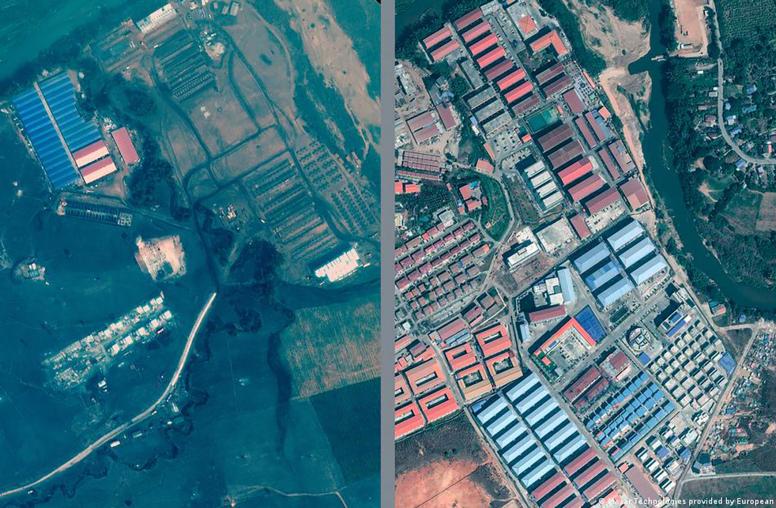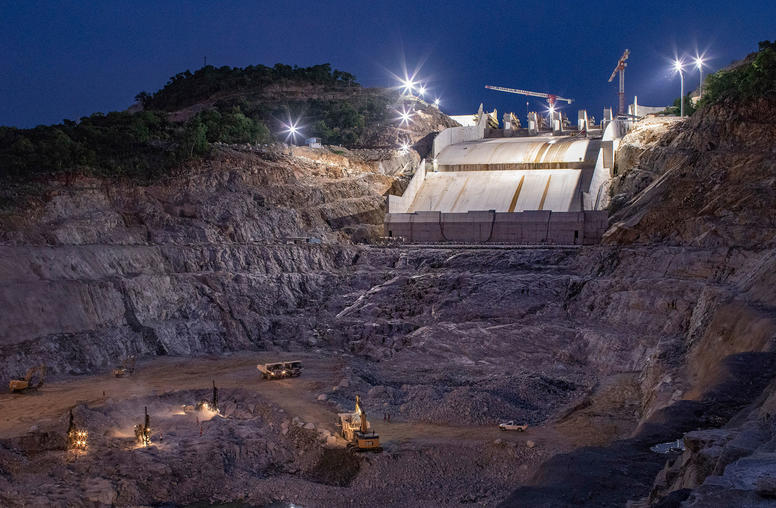 Economics
Economics
Economic security and peacebuilding are inextricably linked. When left unaddressed, issues like widespread poverty, food shortages and poor development can leave societies at a higher risk for violent conflict — conflict that can, in turn, deepen economic crises and spark a vicious cycle. USIP conducts research to better understand the complex relationship between economics and conflict and formulates recommendations for combining inclusive and equitable economic development with strategies for sustainable peacebuilding.
Featured Publications

How Afghanistan’s Economy Can Survive Shrinking Shipments of U.N. Cash Aid
Afghanistan’s precarious economy is facing a new set of multidimensional risks as humanitarian aid — delivered in massive shipments of U.S. cash dollars — shrinks rapidly amid competing demands from other crises around the world. The dollar inflows, moved under U.N. auspices, have helped stabilize the Afghan economy, cover its mammoth trade deficit, and inject monetary liquidity into commerce. With much smaller cash infusions, in line with a general reduction in aid, the suffering of Afghanistan’s poverty-stricken population is likely to increase.

The Latest on Southeast Asia’s Transnational Cybercrime Crisis
Increasing scrutiny and exposure of global internet scams based in Southeast Asia has sparked fast-moving developments to quash the schemes and countermoves by the organized gangs behind them. Recent months have seen crackdowns, arrests and internet cutoffs by law enforcement agencies and regional governments. Meanwhile, Cambodia and Myanmar continue to be the most egregious havens for criminal operations, while Laos seems to be demonstrating early signs of concern for the impact of organized crime on its sovereignty.

Costly Conflict: Here’s How China’s Military Options for Taiwan Backfire
When Lai Ching-te was inaugurated as Taiwan’s new president in May, he thanked supporters “for refusing to be swayed by external forces” and called on China to cease “political and military intimidation.” Days later, Beijing sent its own blunt message to Taiwan’s newly elected president. China’s army, navy, air and rocket forces converged in nearby waters to test its readiness to “reunify” with Taiwan, whether or not the self-ruled island — or any of its international supporters — shared the same objective. Such Chinese military drills around the Taiwan Strait point to one of the world’s most combustible threats, a potential conflict between China and Taiwan that draws in the United States and wreaks havoc with the global economy.
Current Projects

Transnational Organized Crime in Southeast Asia
Over the past decade, Southeast Asia has become a major breeding ground for transnational criminal networks emanating from China. USIP assembled a senior study group to assess one of the most pernicious aspects of such criminality: rapidly spreading, industrial-scale scam compounds that rely on forced labor lured from around the world. The senior study group convened four meetings to share research and information on the trends, dimensions and character of the criminal networks operating the scam compounds and developed recommendations for countering their malign effects.

Critical Minerals in Africa
Often throughout Africa’s history, natural resource exploitation has brought devastating consequences. However, it’s clear that Africa’s critical minerals will be developed regardless of the risks. The question is: How will critical minerals be developed and to whose benefit?

Peace and Security Issues in Africa-China Economic Relations
Much of the research that has been conducted on the impact of China’s economic engagement with Africa has focused on their economic exchanges and security engagements in isolation of one another. But few have sought to understand the interconnections between these themes. These interconnections matter, as some Chinese firms are responsible for environmental degradation, population displacement, corruption and illegal extraction activities — all of which are factors that can drive conflict.